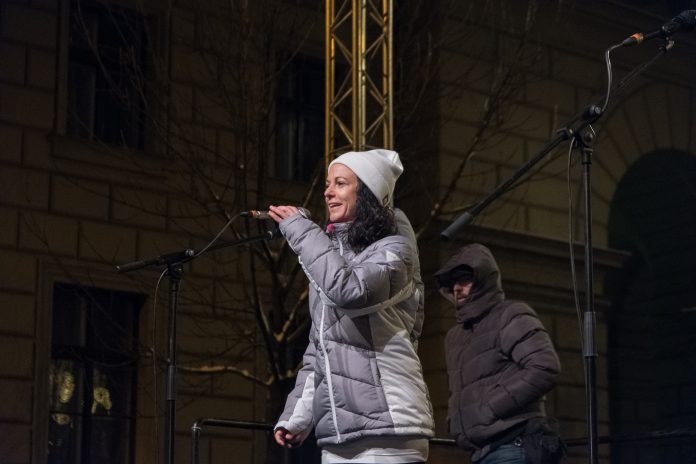Following a week of protests in Hungary, the country’s political opposition has pledged to keep up the pressure on the country’s far-right prime minister, Viktor Orbán.
As previously reported, the protests were triggered by a so-called “slave law” which allows employers to force employees to work overtime and lets them delay payment for up to three years. It was passed together with legislation that provides for greater government control over the court system, the latest move by Orbán’s Fidesz party to capture independent state institutions.
As reported by the Guardian, a number of different opposition parties are cooperating on a joint strategy to keep pressure on the government.
“We’re closely cooperating on a daily basis, and are planning roadblocks and further demonstrations if the president signs this into law,” said Tímea Szabó, of the opposition LMP (Politics Can Be Different) party. She also said the opposition would announce civil disobedience action, though she refused to specify what it had in mind.
“Brace yourselves for a new kind of democracy, one born of a carefully managed revolution by remote control,” wrote government spokesman Zoltán Kovács in a blogpost about the protests. “The revolution unfolds with protest leaders from a band of the usual suspects, many of them trained abroad and with close ties to Soros networks.”
According to the Guardian, the Hungarian government has noted that the opposition parties enjoy marginal support, as shown by the April election, in which Orbán’s Fidesz party won two-thirds of the seats in parliament. However, the opposition say this is largely because of the almost total domination of the media by Fidesz and add that even if they are a minority in parliament they should have access to the airwaves on publicly funded television.
“We don’t get airtime at all,” said Balázs Bárány of the socialist party, who was given a rare opportunity to air protesters’ demands on Echo TV, which is controlled by government-linked figures. “Can you imagine if Jeremy Corbyn was on air less than once a month on the BBC?”

